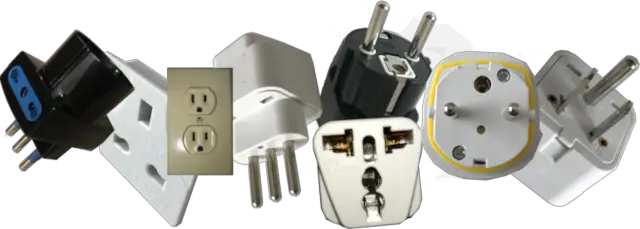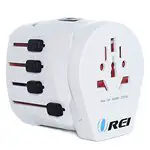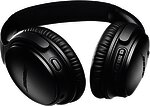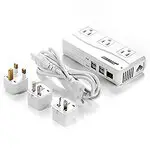How to use plugs from Brazil in Libya
Plugs, sockets, adapters and other information needed for travelling from Brazil to Libya in this page. If you want a report for other countries, re-start the wizard to find to electric adapters for your trip here.
Quick Chart at-a-glance
| Brazil | Libya | ||
|---|---|---|---|
| Voltage: | 110V, 220V. | 127V. |
|
| Plugs Type: | A, B, C, I, N. | D. |
|
| Hertz: | 60Hz. | 50Hz. |
|
If you are electrical savvy, perhaps the previous chart is all you need. If this is not the case, you can continue reading and discover what the chart is saying!
Plugs and Sockets at each country
In Brazil the following plugs are used: (includes Brasília, Rio de Janeiro, São Paulo, Salvador, Belo Horizonte, Recife, Manaus.)
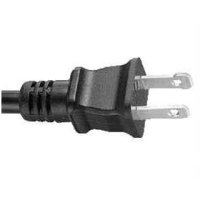
|
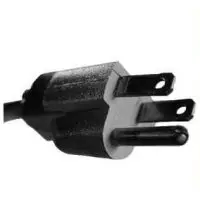
|

|

|
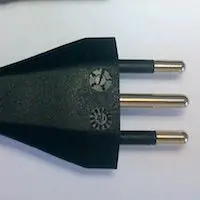
|
| Plug Type A | Plug Type B | Plug Type C | Plug Type I | Plug Type N |

|
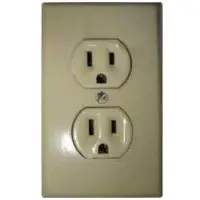
|

|

|
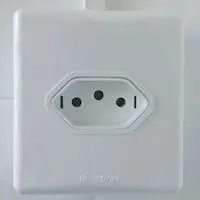
|
| Outlet Type A | Outlet Type B | Outlet Type C | Outlet Type I | Outlet Type N |
Considerations for Brazil
Multiple readers have reported that Brazil uses mostly type "C" and 220V (hotels and big cities). Officially the plug type "N" is the definite and standard nowadays, it can be used with plugs type "C". How much and and to what extend the standard is enforced is unknown to us and it will depend on where you go, expect high variance in its enforce.
Considering Brazil is a big country, it might be possible your location might be using 110V and flat type plugs (A & B). Sockets type "I" are less common but still possible to find them, i.e. in an air-con. We keep the lesser common outlet-types and voltages in our database for your consideration.
... and in Libya you will use: (includes Tripoli.)
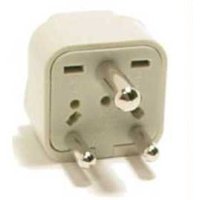
|
| Plug Type D |

|
| Outlet Type D |
Voltage
Take extreme care: the electric network is not homogeneous
Different voltages are used within the countries. So perhaps different voltages are used in different regions or cities. You will have to exercise extreme caution about this. Before pluging any electric device, you should check your device voltage and you must ask a local for the voltage used in the electric network. If you move to different city or region, you should ask again. Using electric devices in different voltage network could incurr in a broken device and even fire. Please read further the page for more information.
On the positive side, nowadays many devices will switch automatically to the network voltage and they will work just fine, i.e. mobile phone chargers are typically multi-voltage (but please, do actually check your own).
High-power devices don't usually handle different voltages due to the high-currents involved i.e. anything that its main purpose involves generating heat (or cold) like hair driers, baby bottle warmers, kettles, etc. On the contrary, modern low-power devices are likely to auto-detect and auto-adapt to different voltages i.e. usb chargers, laptop chargers, etc.
You might either need a step up voltage converter, a step down voltage converter, or maybe, nothing at all. When a country electronic grid is not homogenous, there is not much we can help but ask you to exercise caution.
Plugs Type
Different plug systems
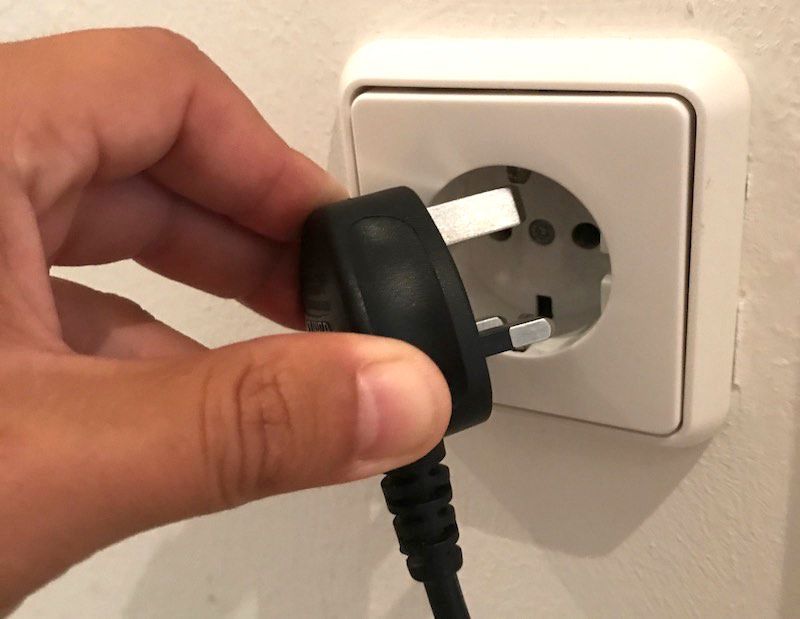
Sorry, none of the plugs used in both countries are common. You will definitelly need plug adapters, please continue reading for more information.
Adapters
Im sorry, we can't find an adapter for your travel in our database.
Adapters you can buy
You can buy the following multi-purpose adapters from Amazon. Please also take a look at the recommended gadgets for your trip.
Hertz
No equal Hertz
This is not a big issue. Unless you are using an electric alarm clock or some motors when speed is an issue. Explanation: Some alarm clocks uses the frequency of electricity network to measure time. So, time shifts could be experimented. Almost every home electronic device works perfectly with different Hertz.
Finally, by the way ...
We are revamping the blog! Visit our new blog here.
↬ a link from your website helps too.
